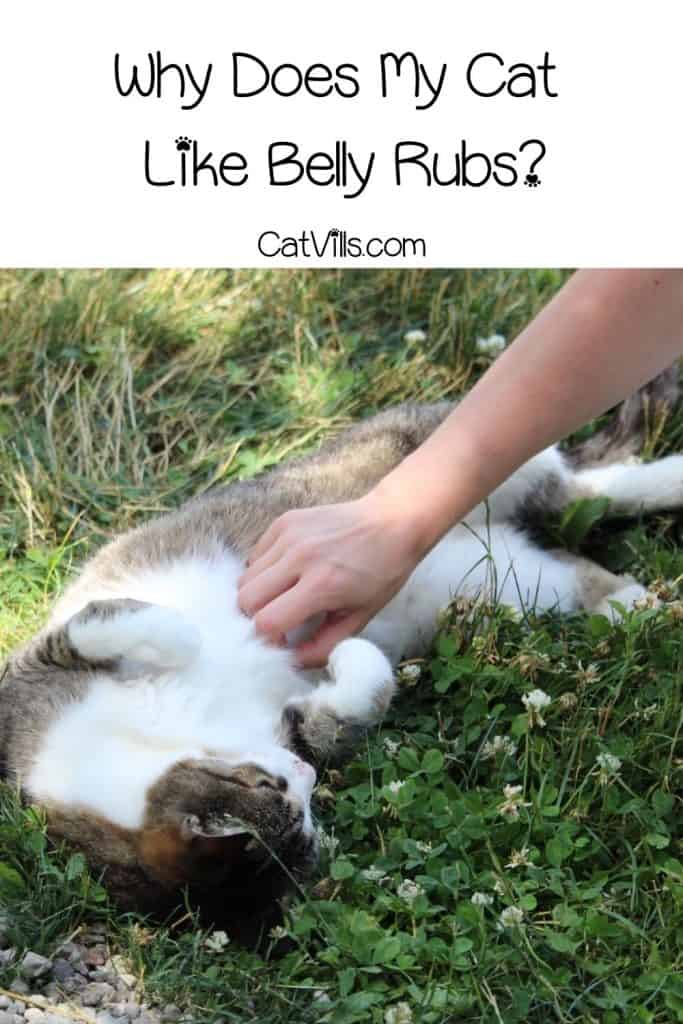Last Updated: 3 months ago
Have you ever considered whether your cat likes belly rubs?
Or why do cats like their bellies rubbed?
I’d associate a belly rub with a dog more than a cat because there are arguments that say that cats don’t enjoy belly rubs.
Let’s find out the exact reasoning!
A Majority of Cats Don’t Enjoy Belly Rubs
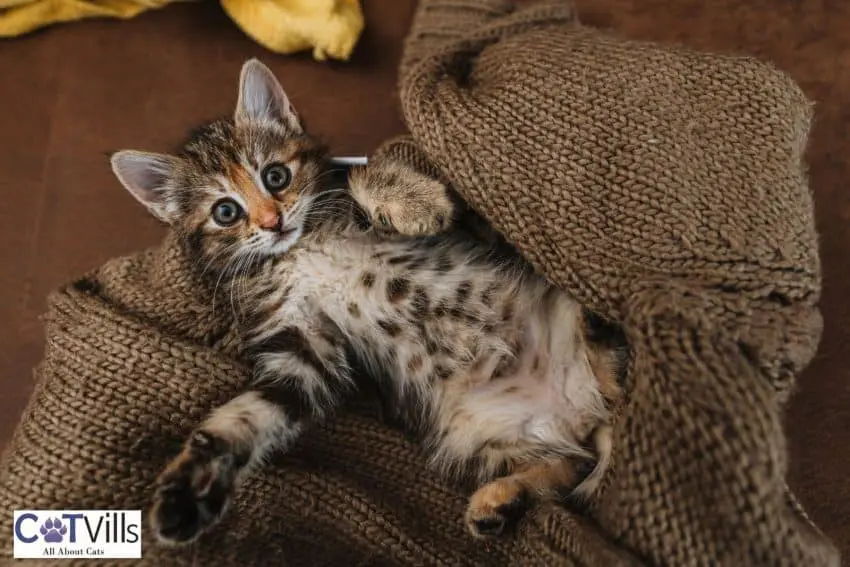
Unlike dogs, most cats don’t like belly rubs.
People often expect cats to behave like dogs. It’s probably because it’s often been a choice between the cat and dog lovers. However, never have two creatures had so much difference in their personalities.
The skin of cats is made from different layers.
In the layer known as the dermis, many structures can be seen that contribute to a cat’s normal bodily functions, such as the regulation of its body temperature and even innervation.
The belly of cats is quite sensitive since they contain many nerve endings. It is susceptible to stimuli brought by external factors like touch.
This results in a feeling of overstimulation for most cats, which is displeased. They may even be overwhelming to some.
In an article written for National Geographic, cat behavior consultant Lena Provoost of the University of Pennsylvania School of Veterinary Medicine explains that skin in the belly area is more sensitive.
The belly, too, is a vulnerable spot that protects the many vital organs of your cat.
It may be your cat’s instinct to protect itself from any danger that it feels can threaten his survival when avoiding that standard cat belly rub.
Why Don’t Cats Like Belly Rubs?
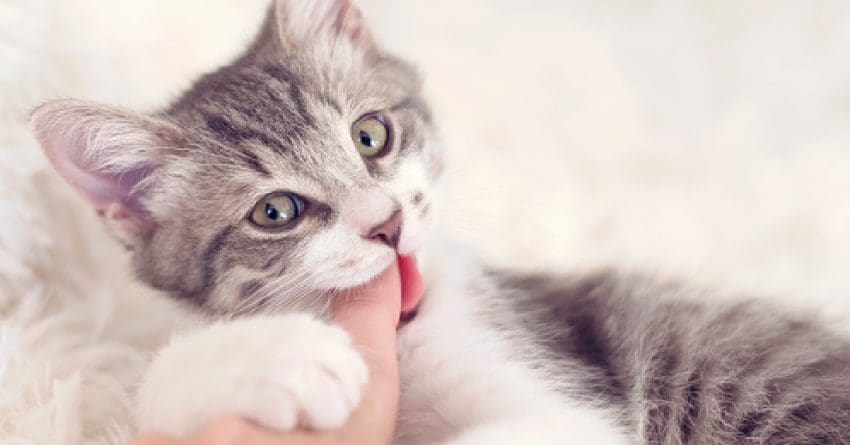
As I already said, some cats don’t like belly rubs because the hair follicles are hypersensitive in this area.
So, getting petted in this area is overstimulating or uncomfortable for your kitty and they can’t stand it. It’s no wonder cats react to this type of stimulation by biting or attacking your hand.
Instead, cats prefer when your pet their chins, cheeks, or heads. They have scent glands in these body parts, so whenever you pet your cat, you get marked with your kitty’s unique scent.
Besides sensitivity, many cats don’t like belly rubs because it puts them in a vulnerable position. They don’t trust their owners enough to relax and enjoy the experience.
And some cats have had a negative experience with belly rubs before. They shy from your touch or run away when you attempt to pet them because it brings back bad memories.
Finally, every cat has a unique personality and unique spots they like you to pet. And some cats just don’t like being petted at all, and there’s little you can do to change their mind.
5 Signs Your Cat Doesn’t Like Belly Rubs
Many cat owners think all cats that roll over on their backs and expose their bellies want belly rubs. They fall for this “Tummy rub” trap and end up with a scratched hand or bitten fingers.
However, sometimes this feline behavior is a sign of submission or a prelude to an attack. And some cats expose their bellies to check if they can trust you not to pet them in this area.
Since it’s not always easy to read your cat’s body language, let’s talk about the usual signs that your cat hates it when you rub their fluffy bellies.
#1 A Tense Body
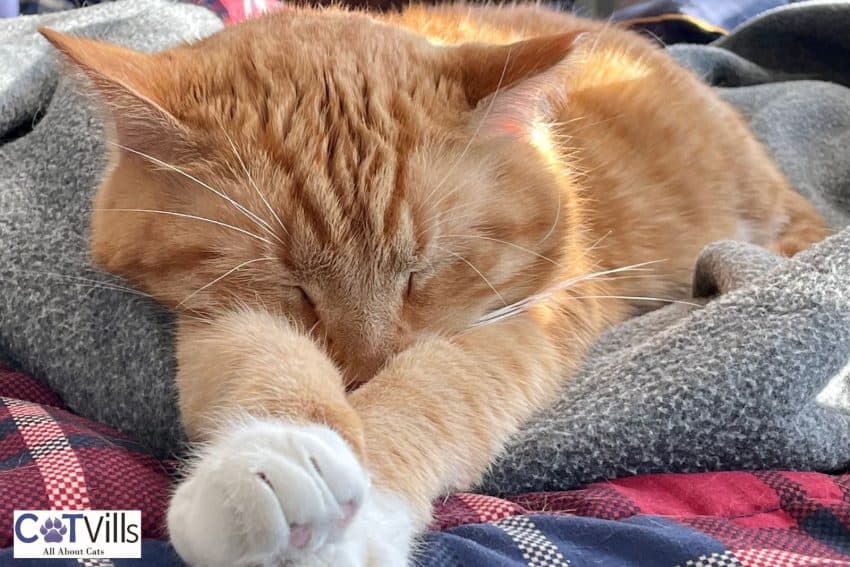
Usually, cats who like it when you pet their tummy relax the moment you touch them. They purr and seem content to lay and enjoy the extra attention you’re giving them.
However, cats who hate tummy rubs will tense their whole body when you attempt to touch them. Some cats will also draw their legs to protect this vulnerable body part from you.
#2 Hiding the Belly
If your cat doesn’t expose its belly to you, it means that your cat isn’t a big fan of belly rubs and doesn’t feel comfortable enough to expose its vulnerable tummy to you.
It’s perfectly normal for some cats to avoid exposing their belly even when they have a good relationship with their humans.
Since such behavior can be a result of a previous negative experience, you should respect your cat’s wishes and not make them roll over to give the tummy rubs.
#3 Running Away from You
When cats want you to pet their tummies, they will stretch their bodies and get comfortable in preparation for the petting session.
Cats run away at the slightest indication that you want to touch their tummy or avoid your hands don’t like belly rubs and you shouldn’t force them.
#4 A Warning Hissing
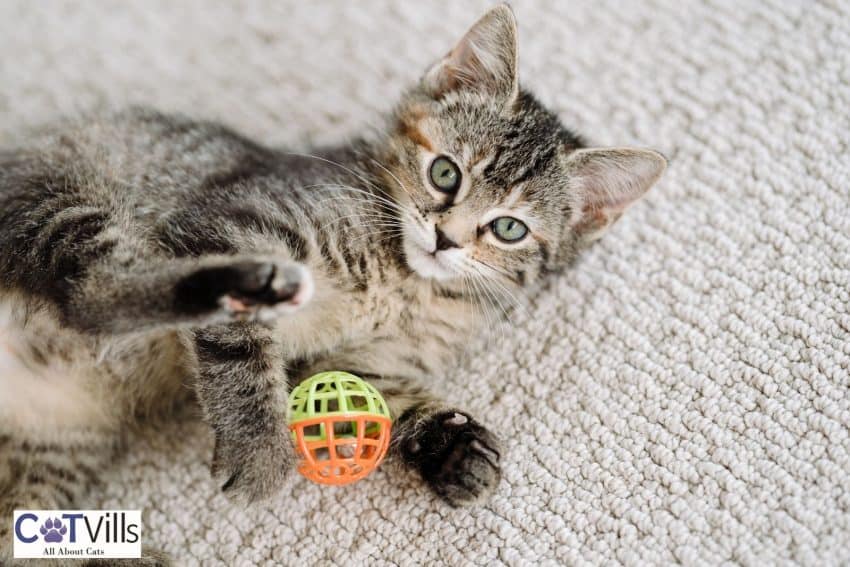
Some cats express their hate of belly rubs by hissing or growling when you attempt to pet their tummies.
It’s a warning that your cat will not hesitate to bite if you don’t back off and give them space.
#5 A Quick Attack
Some cats hate belly rubs so much or are so sensitive in this area that they don’t give any warning signs before they grab your invading hand and bite and scratch.
While biting can be a sign of affection, in this situation, it’s a clear message that your cat doesn’t like what you’re doing. And if you keep pestering your cat, you may end up with deep scratches or painful bites.
It Begins With a Show of Bellies
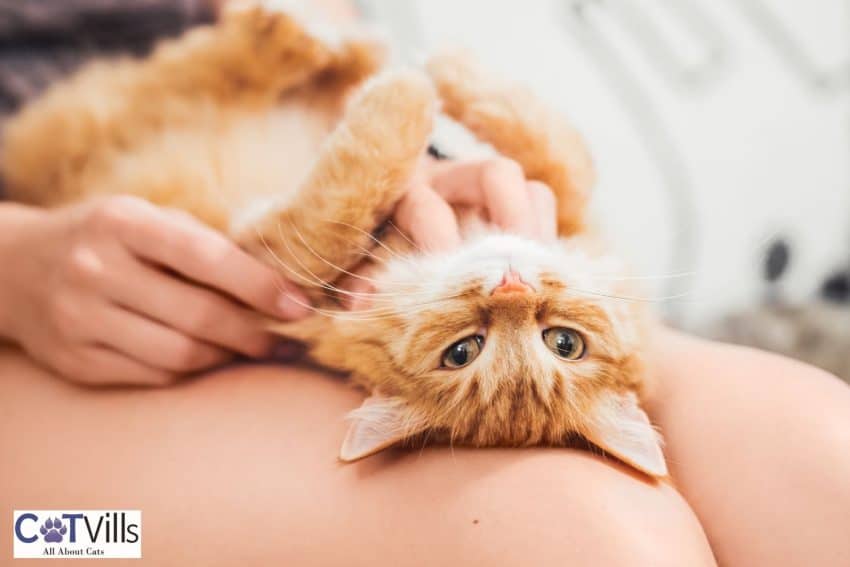
While many cats do not appreciate belly rubs, some eventually get to like them. You can say that you have to overcome some “trust issues” when handling your cat.
Cats are naturally protective due to their predatory nature. Belly exposure is part of his body language to show you that he is beginning to feel comfortable in your own home.
When your cat shows his belly, it may mean that he is in the mood to play with you.
Cats work by trust, and unlike dogs, it may take some time before you can have that ultimate bonding experience with your cat.
So when your cat starts showing his belly to you, please take it as a sign that he is beginning to be comfortable in your home with you.
It may not precisely be an invitation for you to start touching his belly and rubbing it.
So Does that mean that I Can’t Rub my Cat’s Belly?
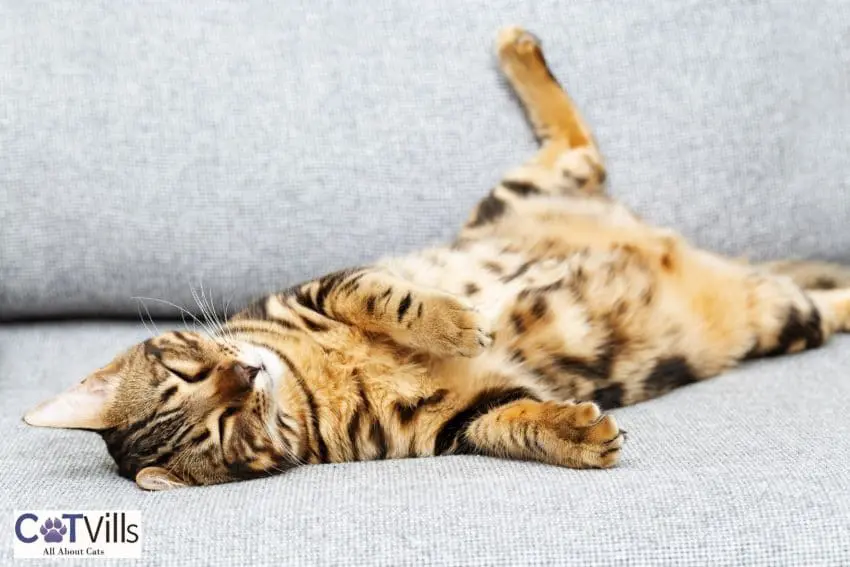
Like all other things, it doesn’t necessarily mean that if most cats hate belly rubs, yours will hate it too.
It all starts with you figuring out what your cat wants and taking note of your cat’s body language. There are, after all, cats who like the sensation of being rubbed in their bellies, so your cat may be part of that club.
You can train your cat to get used to belly rubs, especially if you’ve just welcomed him into your home.
The bottom line is that you should be sensitive and aware of your cat’s reaction to belly rubs if you want to avoid that scratch or that bite.
There are warning signs to look out for to let you know whether or not your cat appreciates being touched on his belly.
If your cat stops purring, or when that purr starts to turn into a hiss, that means that you should stop immediately. If his ears begin to pin upwards, take that as a warning sign as well.
Do take note that, unlike dogs, a cat rolling on its back is a defensive position that it takes, especially when its paws and claws are all out and ready to pounce or scratch.
If Cats Really Hate belly rubs, why does my cat seem to love it?
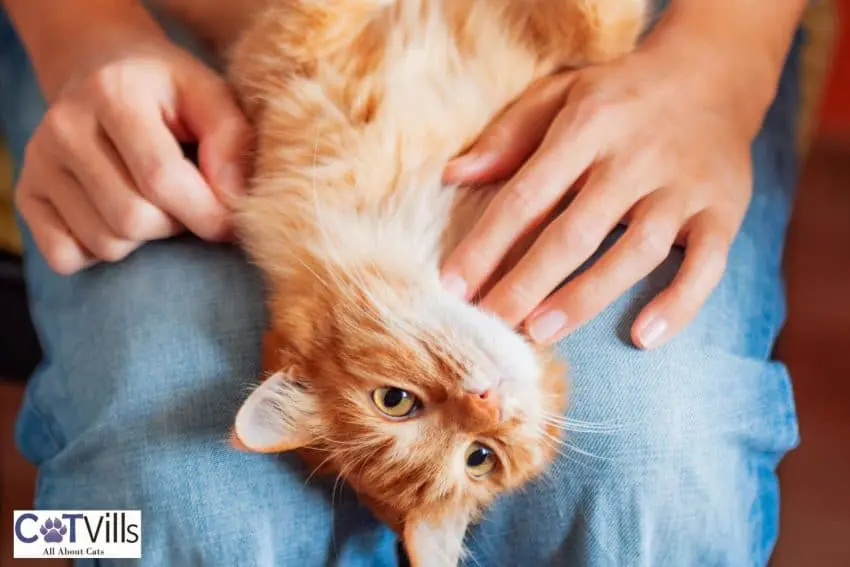
While most cats may hate belly rubs, it shouldn’t mean that your cat will hate it too.
As I said, cats have different personalities, and one is unique from the other. So your cat may be loving a couple of belly rubs from you now and then.
Aside from them like a dose of belly rubs, this may also be an attention-seeking behavior from them to signal you to go and play with them.
Your cat may also be feeling itchy and in great need of a belly scratch.
If your cat is a female, wanting a belly rub may signify that it is in heat. In this case, it would be best to ignore your cat, especially if she has just been spayed.
Can I Train my Cat to like Belly Rubs??
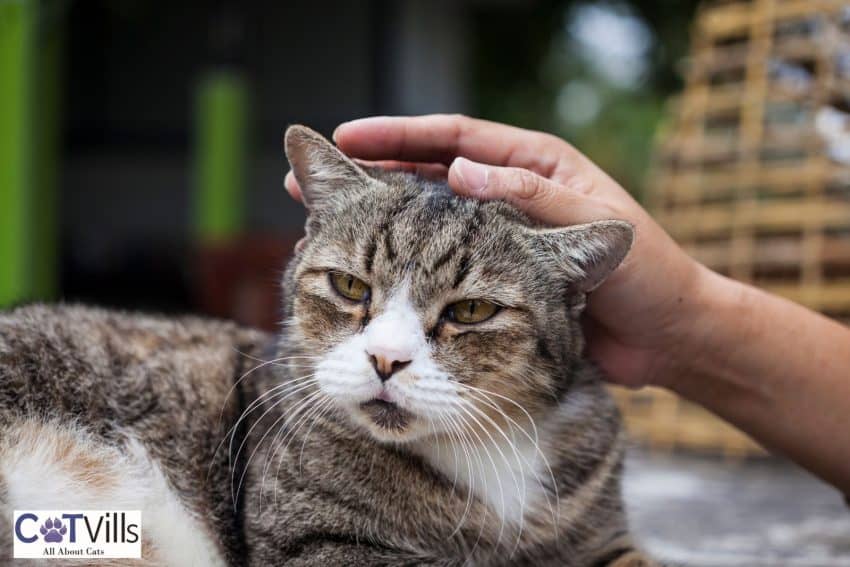
Yes. Training a cat to like belly rubs teaches him to get used to specific practices and get used to a particular behavior.
Like any other training technique, you have to do this slowly. The key to training a cat to enjoy belly rubs is patience and a keen sense of observation.
Remember to always watch for signs that your cat is already getting fed up with the belly rub.
In this case, you may want to immediately stop to avoid any aggressive behavior that he may show once he gets fed up.
Start by touching a part of your cat which he doesn’t mind. For most cats, this is usually in the head area. You can start by rubbing your cat’s head lightly and watching for his reactions.
Slowly touch other body parts while gauging his reactions as you proceed.
Remember to be conscious of warning signs so that you don’t get hurt and lose your cat’s trust.
You can also try giving him some treats while attempting to provide him with scratches and rubs in other body parts, especially the belly so that he can associate this with a positive experience.
As with any training, you are teaching your cat to like belly rubs takes a lot of time, patience, and love.
You cannot rush your cat into liking these belly rubs in minutes. Cats have their personalities, so you have to be mindful of your cat’s personality as well.
If your cat is enjoying his belly rub, he will usually look quite relaxed and will be purring a lot.
If he starts to stiffen and hiss during the belly rub session, take it as a warning for you to stop and back off. You want to see your cat’s wrong side when he loses his patience.
Is It a Good Thing to Have your Cat Appreciate Belly Rubs?
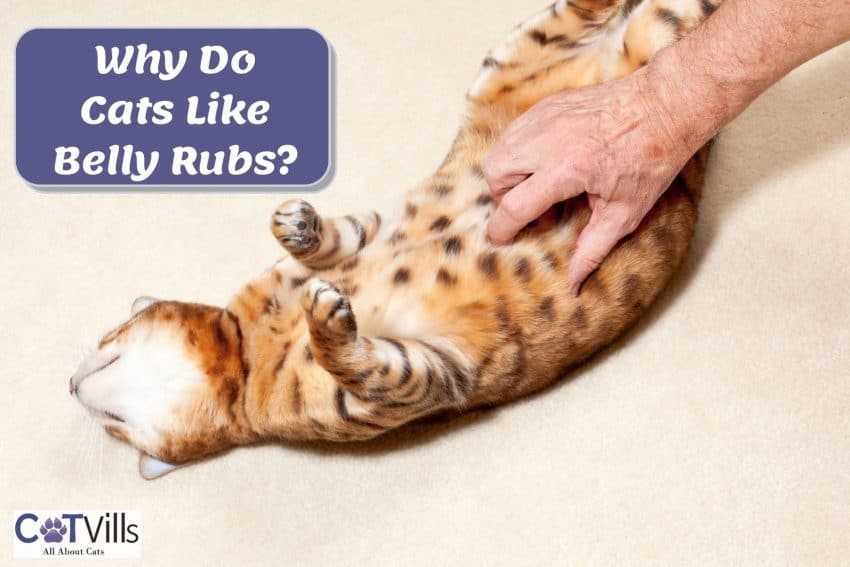
While training your cat to appreciate belly rubs may present be quite a challenge, there may also be some benefits to doing so.
Of course, the primary benefit would be the bonding experience that you may get between the two of you. That, along with some playtime, would be a perfect way for you and you to relax.
Other than that, being able to touch your cat’s belly will be an excellent way to check on your cat for any parasites or symptoms of any disease.
Do take note that while you are at it, you might as well inspect his other body parts before any health problem worsens in time.
Do Cats Like Belly Rubs When They’re Pregnant?
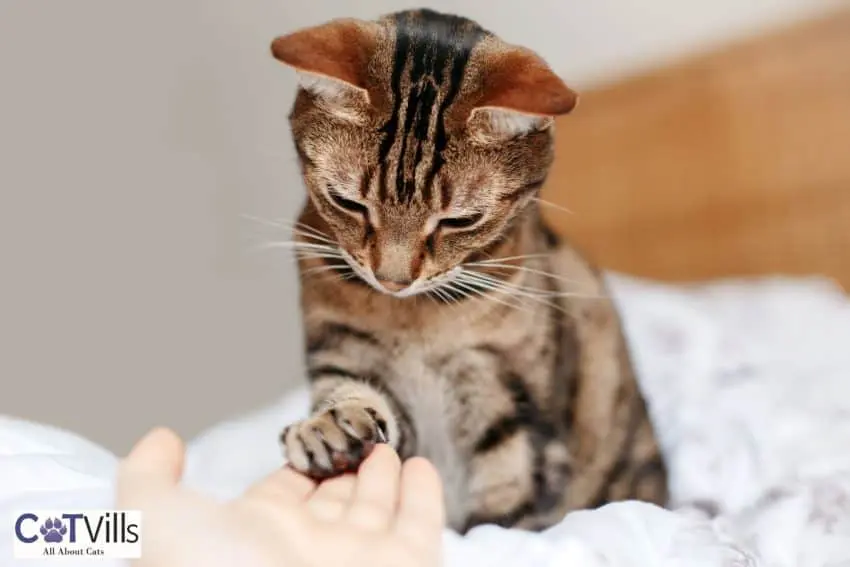
Pregnancy doesn’t always change how your cat feels about belly rubs. Cats who allow you to pet their tummies will likely continue to enjoy it and may become even more demanding and affectionate.
Pregnant cats also love nothing more than someone gently stroking their big tummy because it feels good and relieves some of the pregnancy discomforts.
Even some cats who hate belly rubs may end up liking them during pregnancy. The hormones make even unaffectionate cats act all cuddly and cute.
And your gentle rubs are likely more pleasant for your cat than all those little kittens kicking on the inside.
However, some pregnant cats become very protective of their bellies and won’t allow you to touch them, no matter what.
And in the late stages of pregnancy, cats are even more sensitive, and it’s easy to overstimulate them when you rub their bellies.
As such, you should observe your cat’s reaction to judge if your cat will like the extra attention. And ensure that you pet your cat very gently and don’t put any pressure on its stomach.
Conclusion
As always with cats, though, it is best to be aware of their body language to know if they are comfortable with the practice or not.
Cats can be pretty headstrong, unlike other animals, so you mustn’t push them into liking those belly rubs.
It will take time and patience for you to experience this unique form of bonding between you and your cat.
References:
